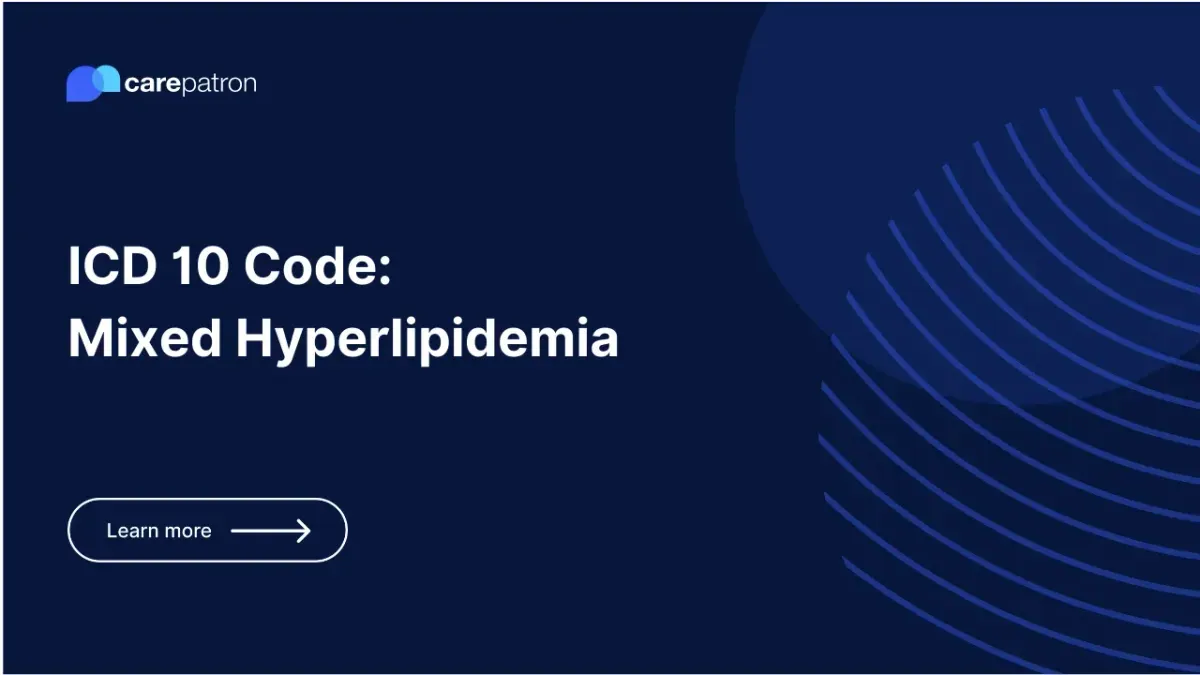
E78.2 – Mixed hyperlipidemia
Get to know E78.2 mixed hyperlipidemia, its billability, clinical details, synonymous terms, and commonly asked questions.
Use Code
EHR and practice management software
Get started for free
*No credit card required
Free
$0/usd
Unlimited clients
Telehealth
1GB of storage
Client portal text
Automated billing and online payments
